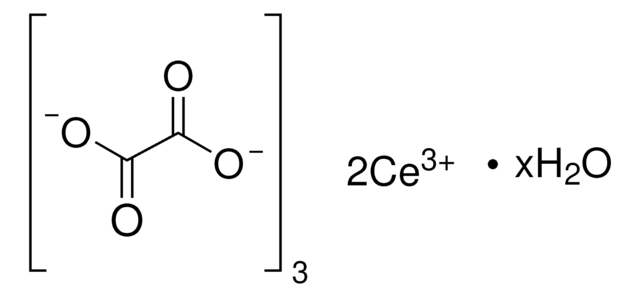All Photos(1)
About This Item
Linear Formula:
BaCO3
CAS Number:
Molecular Weight:
197.34
Beilstein:
7045119
EC Number:
MDL number:
UNSPSC Code:
12352302
PubChem Substance ID:
Recommended Products
grade
CP
form
powder
availability
available only in Japan
pH
6.8 (37 °C, 3.67 g/L)
SMILES string
[Ba++].[O-]C([O-])=O
InChI
1S/CH2O3.Ba/c2-1(3)4;/h(H2,2,3,4);/q;+2/p-2
InChI key
AYJRCSIUFZENHW-UHFFFAOYSA-L
Looking for similar products? Visit Product Comparison Guide
Signal Word
Warning
Hazard Statements
Precautionary Statements
Hazard Classifications
Acute Tox. 4 Oral
Storage Class Code
13 - Non Combustible Solids
WGK
WGK 1
Flash Point(F)
Not applicable
Flash Point(C)
Not applicable
Personal Protective Equipment
dust mask type N95 (US), Eyeshields, Gloves
Certificates of Analysis (COA)
Search for Certificates of Analysis (COA) by entering the products Lot/Batch Number. Lot and Batch Numbers can be found on a product’s label following the words ‘Lot’ or ‘Batch’.
Already Own This Product?
Find documentation for the products that you have recently purchased in the Document Library.
Miyako Akiyoshi et al.
Journal of hazardous materials, 132(2-3), 141-147 (2005-12-14)
Iron picrate (FePic) was synthesized under conditions similar to those that result in the natural deterioration of chemical weapons. Its thermal hazard was investigated by comparing it with iron picrate obtained by the chemical synthesis method (FePic(Ba)). FePic has eight
Mallikarjuna N Nadagouda et al.
Journal of hazardous materials, 188(1-3), 19-25 (2011-02-01)
BaCO(3) dispersed PVC composites were prepared through a polymer re-precipitation method. The composites were tested for sulfate removal using rapid small scale column test (RSSCT) and found to significantly reduce sulfate concentration. The method was extended to synthesize barium carbonate-loaded
Kevin V Brix et al.
Ecotoxicology and environmental safety, 73(7), 1646-1652 (2010-07-14)
A series of Toxicity Identification Evaluations (TIEs) to identify the cause(s) of observed toxicity to Ceriodaphnia dubia have been conducted on a hard rock mining effluent. Characteristic of hard rock mining discharges, the effluent has elevated (∼3000 mg l(-1)) total
Xiaorang Tian et al.
Journal of hazardous materials, 160(2-3), 589-593 (2008-04-25)
In this study, the exploration of making acidproof fracturing proppants using red mud was carried out. The main raw materials are red mud and the refractory waste. During the exploration, three methods were explored to enhance the acid resistance of
G H Kramer et al.
Health physics, 70(3), 418-424 (1996-03-01)
High level contamination was observed on two workers during a routine hand check of personnel leaving a laboratory where barium carbonate labeled with 14C was handled. A third worker was found to have been exposed to airborne 14C (carbonate) aerosol
Our team of scientists has experience in all areas of research including Life Science, Material Science, Chemical Synthesis, Chromatography, Analytical and many others.
Contact Technical Service






